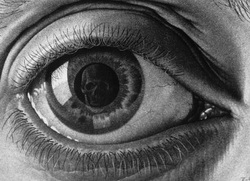"The Trouble with Ghost-Seeing: Vision, Ideology,
and Genre in the Victorian Ghost Story"
By Srdjan Smajic
"Supernatural fiction, [Sir Walter Scott] believes, should be subtly provocative rather than declarative, suggestive rather than bluntly explicit. What is 'brought...into view,' both literally (through visual imagery) and figuratively through verbal explication), ought to remain just barely visible, glimpsed rather than fully seen. Such a narrative must occupy a liminal space between expressions of faith and doubt, belief and skepticism, and it is precisely to the extent that it manages to maintain this liminality."
- In the quote above, the author argues that stories of supernatural occurrences should be descriptive, but should leave certain imagery to the imagination of the reader.
- This article debates the believability of ghost stories and ghost sightings. The author discusses how much we can depend on our eyes to show us reality, comparing them to "unreliable equipment" that often "confuse the mind with misleading information".
- Whether a person trusts what they see or what they feel and believe to be existent, these different perceptions of reality are deemed "models of spectatorship".
- Thomas Carlyle, a Scottish, Victorian-era writer, declares that a person's tendency to trust their gut and their faith is called trusting one's "inner senses". Trusting merely what is seen in front oneself is referred to as trusting one's "outer senses". Carlyle argues, however, that it is not feasible to use just one's inner or outer senses, but that the spiritual phenomenon of sight is an action achieved by using both "the lens of the eye" and "the soul of the eye".
- The author of this paper refers to the previous reading discussed, "Strange Disturbances in Aungier Street", pointing out that the characters "take comfort in the possibility that the apparition may have been 'an ocular delusion'".
Discussion Questions:
- As technically-inclined people, do you all feel a stronger need to see something in order to believe it?
- Does this affect your religious beliefs?
- Do you think that there are any aspects of science that you need to use your "inner senses" in order to believe? In other words, is all scientific data only believable if proof is directly in front of us, or do you think that there are certain topics that one must simply believe and have faith in?

